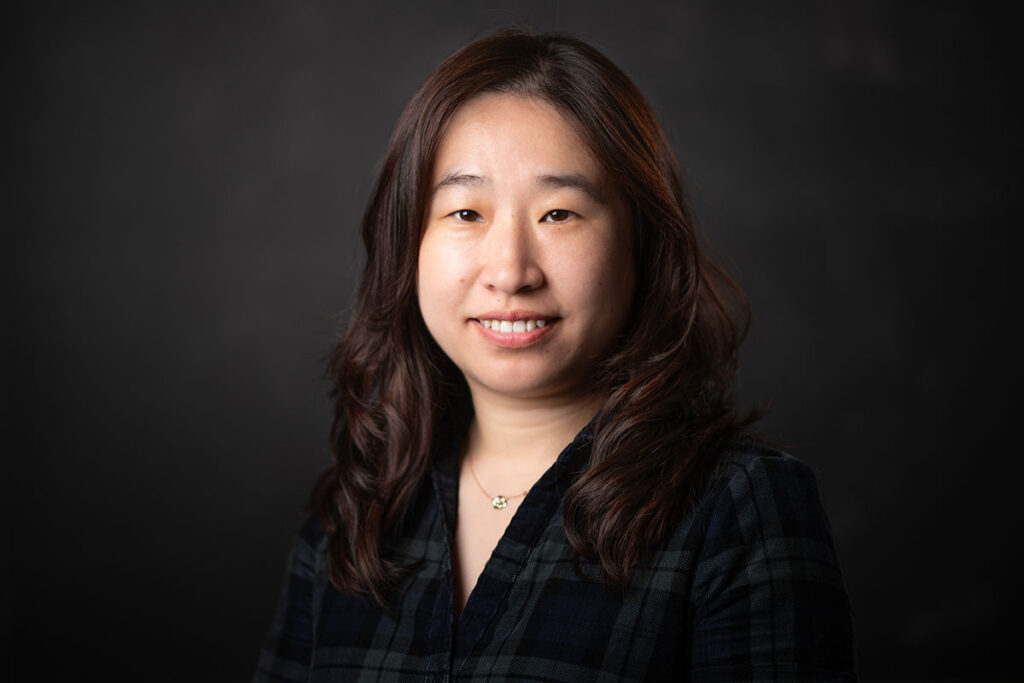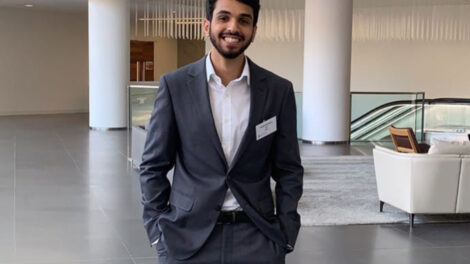
Hongxing Liu | Photo by Adam Atkinson
Research area: My research interests are in the fields of environmental and resource economics, with particular focus on the feedback between economic behavior and ecosystem services. That is, I quantify the impact of environmental changes, such as the valuation of improvements in water quality, and look for innovative policies and mechanisms that could change people’s behavior to promote improvements. In my primary line of research, I focus on water quality valuation and policies, such as designing agricultural policies to promote the adoption of best management practices (BMPs) to improve downstream water quality. More recently, I have started to theoretically analyze and empirically test the effectiveness of behavioral nudges on various behaviors (food waste and choices, pro-environmental donation and consumption, etc.) to promote pro-environmental behaviors.
My Lafayette journey: I completed my Ph.D. at Ohio State University in 2017, I enjoyed my teaching experience so much that I was specifically looking for jobs at small liberal arts colleges. I was extremely excited to start my career here at Lafayette College, for its distinctive teacher-scholar model, its dedication to sustainability, and its devotion to fostering an inclusive environment for students. In the past seven years, I deeply value my experience at Lafayette College and appreciate the support I have received from my colleagues and students. This challenging and rewarding journey has led me to grow as both a teacher and a scholar.
There is a saying, commonly and perhaps apocryphally attributed to Benjamin Franklin, that I identify with as a teacher: “Tell me, and I will listen; Teach me, and I’ll remember; Involve me, and I will learn.” My goals in teaching are to engage students in active learning and encourage them to apply the economics they learn in class to real-world issues such as their personal decisions and public policies. My focus in teaching is not just economic theories, but also how students can apply the skills they learned in their lives. For example, I give students pro-tips on “how to learn” every week, so that they can learn anything better in the future. I involve students in projects related to Lafayette College, such as the cost-benefit analysis of carbon pricing plans or purchasing electric vehicles. I also love seeing how my students grow over the years, a card or email from previous students always makes me smile.
Last but not least, I value my colleagues very much. They make coming to work enjoyable.
What I will be teaching in the fall: I will be teaching ECON 340: Environmental and Resource Economics and a senior capstone ECON 408: Cost-Benefit Analysis. In these classes we explore the interactions among human well-being, economies, and environmental integrity, discuss the role of economics in environmental and resource challenges, and discuss different policy instruments to solve market failures. We discuss the strengths and limitations of cost-benefit analysis as a policy tool. Students can learn about the theoretical background and acquire practical skills required to conduct and critically assess a cost-benefit analysis. I’m excited to incorporate many new pedagogy activities into these classes to help students practice retrieval and interleave.
Read more about faculty members who have been promoted to associate professor with continuous tenure.


